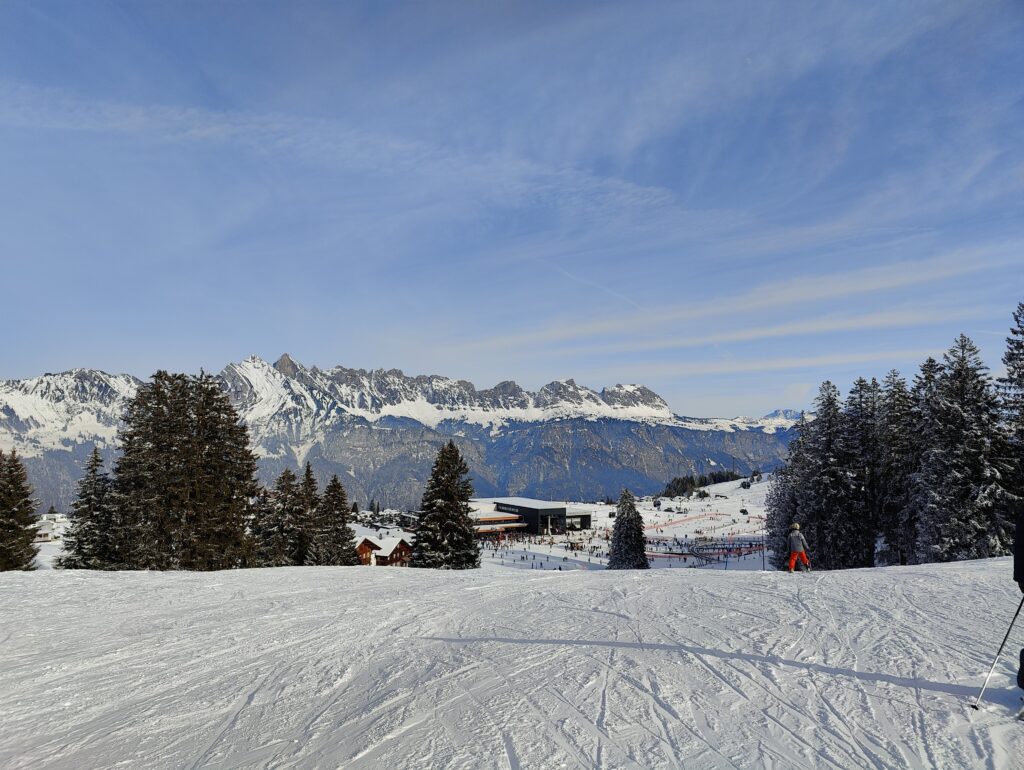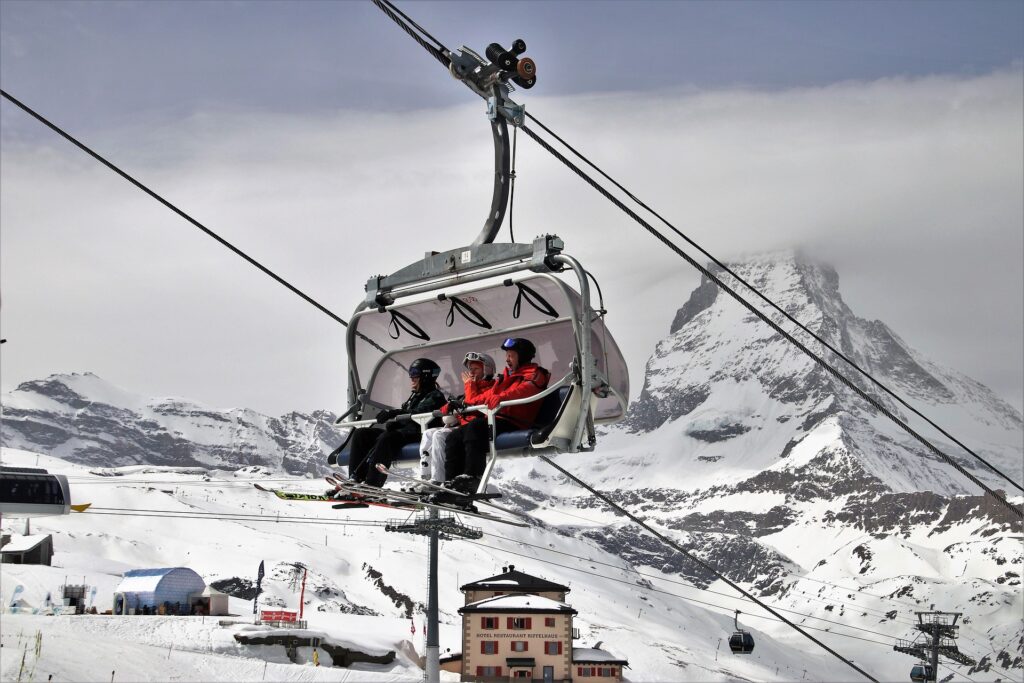Weak growth for Swiss winter tourism
According to tourism forecasts, after a record summer, the number of overnight stays in Switzerland will only increase by 0.4 per cent to 17.5 million in the winter of 2023/2024.

The era of record numbers of Swiss guests is over but demand from Europe is proving robust despite rising interest rates, a strong franc and a weak economic climate. Domestic tourism is declining but demand from Asian countries such as China and India shows no sign of abating. There is also an increase in American visitors and a high number of guests from the United Kingdom.
Record summer thanks to English-speaking visitors and strong European demand
Last summer Switzerland recorded a record 23.5 million overnight stays, despite a slowdown in domestic demand compared to the excellent previous year. Particularly noteworthy was the continued increase in American visitors, who spent significantly more nights than before the pandemic. Despite the economic uncertainties, European demand remained surprisingly stable. Tourists from the United Kingdom were numerous. Overall, Swiss tourism is on its way to a record result for the tourism year 2023, and is expected to exceed the 40 million overnight stays mark for the first time in a single year.
Helvetic summer tourism rising due to return of Asian guests
Andermatt and Murten among world’s best tourist villages
Foreign guests compensate for falling domestic demand in winter 2023/24
The key question for the coming winter is whether the decline in domestic guests can be offset by an increase in foreign demand. BAK Economics predicts a slight increase in overnight stays of 0.4 per cent (+66,000) for winter 2023/24 compared to the previous winter. Although current domestic demand remains high and BAK Economics expects it to remain around 10% above pre-crisis levels (2019), some slowdown is conceivable due in part to the normalisation of travel habits and in part to the slowdown in economic dynamics. Overall, Swiss guest demand is expected to decline by -2.2% in winter (-208,000) while European demand is likely to extend some of the positive summer momentum into winter and, although last winter was still weak, a return to pre-crisis levels can be expected.
BAK Economics predicts an increase in European guest nights of 2.2 per cent (+115,000), in particular, the German source market has significantly exceeded the pre-crisis figures in the last two summers, but has not yet managed to reach them during the last winter season. As far as distant markets are concerned, the picture is more mixed. Despite high growth rates, China remains well below its pre-crisis level. Besides China’s faltering recovery, the rest of Asia is also facing challenges. In India – usually with a very dynamic domestic market – persistent visa problems are holding back the recovery process. Since these problems are likely to be resolved in the near future and there is still considerable potential for recovery, BAK Economics forecasts strong growth in distant markets of 5.4 % (+159,000) for winter 2023/24.

Positive summer momentum continues into 2024
For summer 2024, BAK Economics expects growth of 0.7% (+166,000) to 23.7 million overnight stays. Domestic demand (-2.2%) will slow down next summer, but will remain at a high level. The European market (-4.6%) will not be able to maintain the high levels of summer 2023, but will provide similar figures to those of 2019. The strong demand from the United States is expected to slow down slightly next year, mainly due to the uncertain economic outlook and the end of recovery effects.On the other hand, other distant markets are expected to register a sharp increase (+13.5%), providing a strong impulse for growth.After next summer, old patterns are likely to reappear. The share of European guests will decrease, while distant markets will gain in importance. BAK Economics expects domestic demand to stabilise at a high level.
Business tourism is a key factor for city recovery
During the pandemic, cities and business tourism suffered particularly badly. For the latter, technical progress and the trend towards sustainable development raised serious doubts about its future. Today, this sector seems to have largely recovered. Events focused on personal exchange and networking register similar or even higher visitor numbers than before the pandemic. In contrast, individual business trips, whose main objective is the exchange of information, remain rare. For this reason, BAK Economics estimates that 5-10% of business travellers will stay away from home for a long time.This decline poses a challenge for cities, where business trips account for more than half of all overnight stays. But cities have managed to reposition themselves and are increasingly attracting leisure travellers. Most urban destinations have already returned to pre-crisis levels, reaching the Alps and other regions. In the past, urban tourism grew more than other tourism segments and this trend is set to continue.
Fonte: BAK Economics





